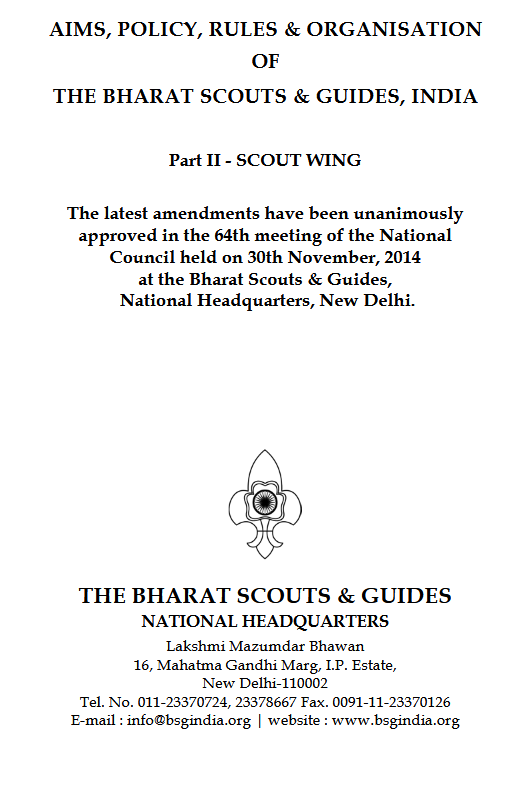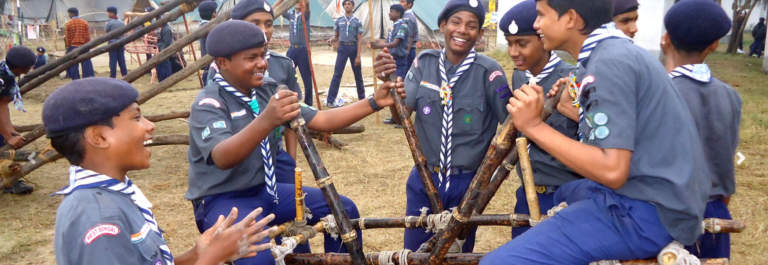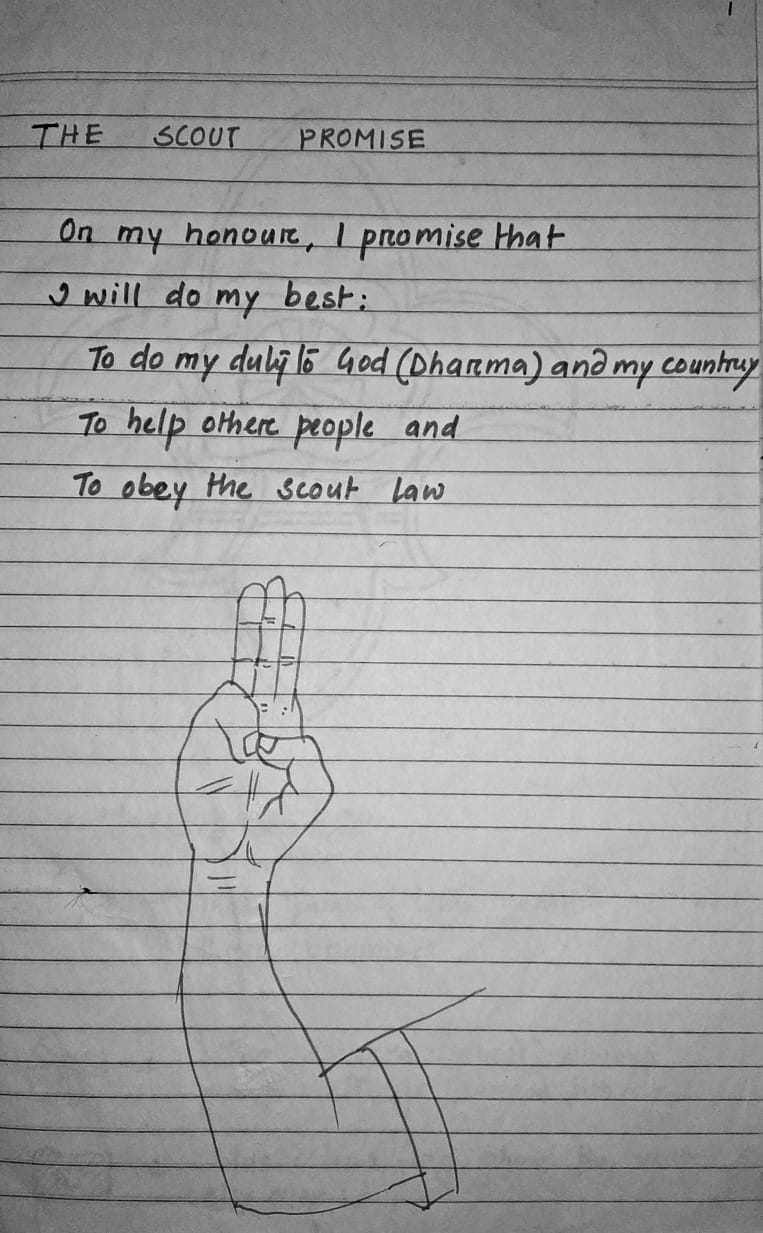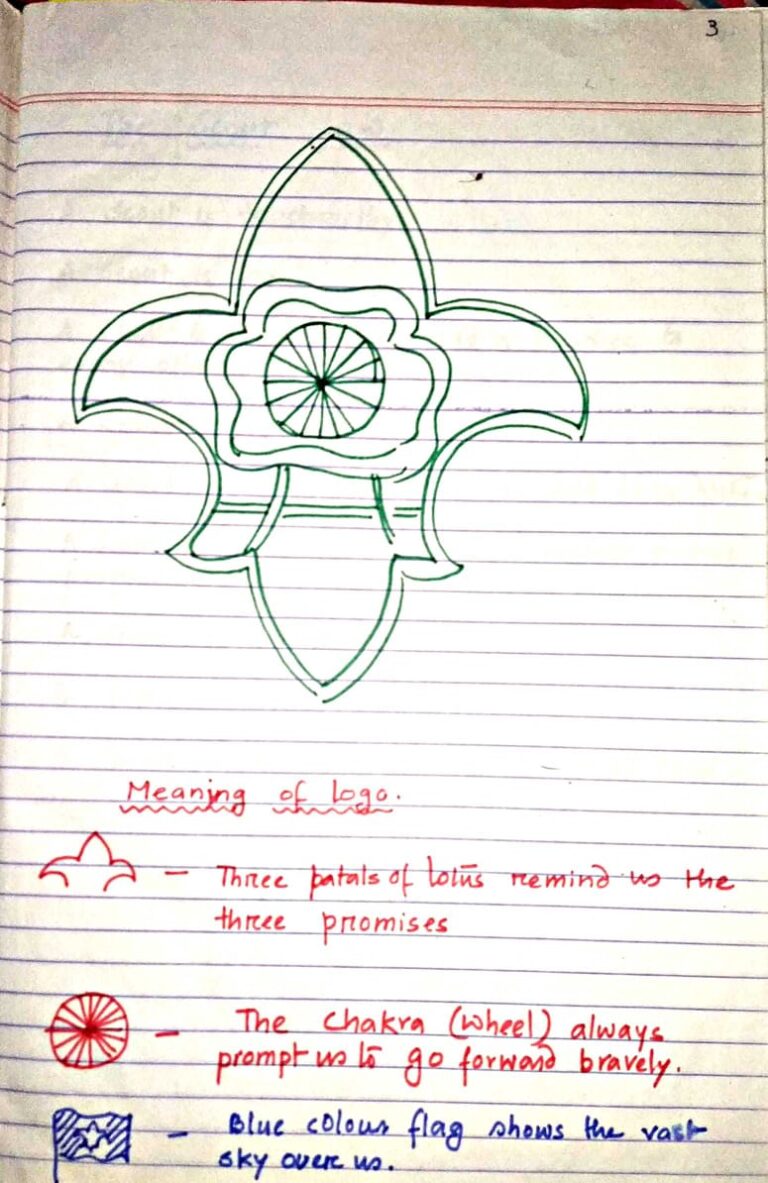
Table of Contents
APRO II for Boys in Bharat Scouts and Guides: Complete Guidelines for Trainers and Trainees
The Bharat Scouts and Guides (BSG) is a national youth movement that shapes young individuals into responsible citizens. The Association Program Rules & Organization (APRO) is a structured guideline that governs the training and progression of Scouts and Guides.APRO II specifically applies to boys in the Scout section, detailing their training, advancement, and responsibilities. This article provides a complete guide for trainers and trainees to understand APRO II effectively.
What is APRO II?
APRO II is the official handbook for training and advancement of Scouts in Bharat Scouts and Guides. It ensures uniformity in the training system across India, covering essential aspects such as:
- Eligibility criteria for Scouts
- Training modules and skill development
- Progression structure from entry-level to advanced ranks
- Awards and recognitions
For trainers, APRO II acts as a roadmap to efficiently guide young Scouts through their journey.
Eligibility and Enrollment in Scouts
To become a Scout under APRO II, a boy must:
- Be between 10 and 17 years of age.
- Take the Scout Promise and Law.
- Register with a recognized Scout Troop.
- Undergo Pravesh (entry-level) training before progressing further.
Training and Skill Development Under APRO II
Training is a key component of APRO II, focusing on character-building, discipline, leadership, and adventure. Scouts go through various modules that include:
1. Basic Training Modules
- Understanding Scout Promise, Law, and Motto
- Knot tying and rope work
- Map reading and navigation
- First aid and emergency response
- Physical fitness and teamwork
2. Proficiency Badges
Scouts earn proficiency badges based on different skills such as:
- First Aid Badge – Demonstrating basic medical skills.
- Camping Badge – Setting up and managing a campsite.
- Cooking Badge – Preparing meals in outdoor conditions.
- Hiking Badge – Navigating different terrains and planning expeditions.
Trainers ensure that each Scout is trained efficiently before awarding badges.


Advancement Structure in APRO II
Scouts progress through different levels, each requiring a set of skills and tasks to be completed.
1. Pravesh (Entry-Level Training)
- Learning Scout Law and Promise
- Basic knowledge of the Scout movement and its history
- Participation in at least 4 troop meetings
2. Pratham Sopan (First Level)
- Mastering basic knots like reef knot, clove hitch, and sheet bend
- Learning basic first aid skills
- Participating in a one-night camp
- Developing physical fitness
3. Dwitiya Sopan (Second Level)
- Advanced knotting techniques (Bowline, Timber Hitch, Fisherman’s knot)
- Understanding signaling methods (whistle, semaphore, Morse code)
- Knowledge of basic survival skills
- Participation in community service
4. Tritiya Sopan (Third Level)
- Organizing and leading troop activities
- Taking responsibility for younger Scouts
- Planning and executing a hiking expedition
- Assisting in disaster relief programs
5. Rajya Puraskar (State Award)
- Completing a long-term community service project
- Demonstrating leadership by organizing Scout events
- Passing an evaluation conducted by State Scout Authorities
6. Rashtrapati Puraskar (President’s Award)
- The highest honor for a Scout in India
- Scouts must complete a rigorous evaluation process
- Conducting a national-level service project
- Showcasing self-reliance, leadership, and expertise in Scouting
Responsibilities of Trainers and Trainees
Role of Trainers
Trainers play a crucial role in ensuring that Scouts develop the necessary skills. Their responsibilities include:
- Conducting regular training sessions.
- Monitoring the progress of each Scout.
- Encouraging leadership and discipline.
- Evaluating Scouts before awarding proficiency badges.
Responsibilities of Scouts (Trainees)
Scouts must:
- Follow the Scout Promise and Law at all times.
- Participate actively in meetings, camps, and activities.
- Help fellow Scouts and engage in community service.
- Work towards earning proficiency badges and awards.
Challenges in Implementing APRO II and Solutions
Common Challenges Faced by Trainers and Scouts
- Lack of awareness about APRO II guidelines.
- Limited access to resources for training.
- Insufficient practical exposure to real-life situations.
Solutions
- Organizing workshops and awareness programs.
- Encouraging digital platforms for learning and communication.
- Conducting outdoor training sessions to provide real-life experience.
Conclusion
APRO II provides a structured pathway for boys in the Bharat Scouts and Guides to develop essential life skills, leadership abilities, and a sense of responsibility. Trainers and Scouts must work together to ensure effective implementation of these guidelines, helping young individuals grow into responsible and disciplined citizens.
FAQs
1. What is APRO II in Bharat Scouts and Guides?
APRO II is the official guideline that outlines the training and progression structure for boys in the Scout section of BSG.
2. What are the different levels in APRO II?
The levels in APRO II include Pravesh, Pratham Sopan, Dwitiya Sopan, Tritiya Sopan, Rajya Puraskar, and Rashtrapati Puraskar.
3. What are proficiency badges in Scouting?
Proficiency badges are skill-based recognitions awarded to Scouts for mastering various tasks such as first aid, camping, and map reading.
4. How can a Scout achieve the Rashtrapati Puraskar?
A Scout must complete all previous levels, undergo rigorous training, and contribute to national-level community service projects to qualify for the Rashtrapati Puraskar.
5. What is the role of a trainer in APRO II?
A trainer is responsible for guiding, mentoring, and evaluating Scouts, ensuring they develop the necessary skills and leadership qualities.
This article provides a complete roadmap for trainers and trainees following APRO II, helping Scouts build a foundation for a successful and disciplined life.
For more information and updates please follow the page and don’t forget to leave your comment.

